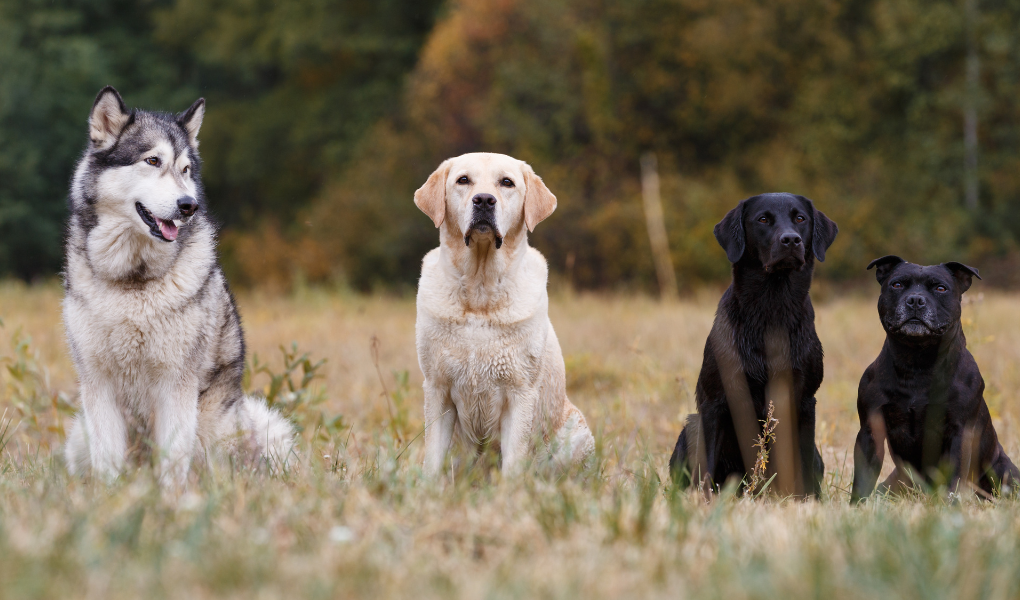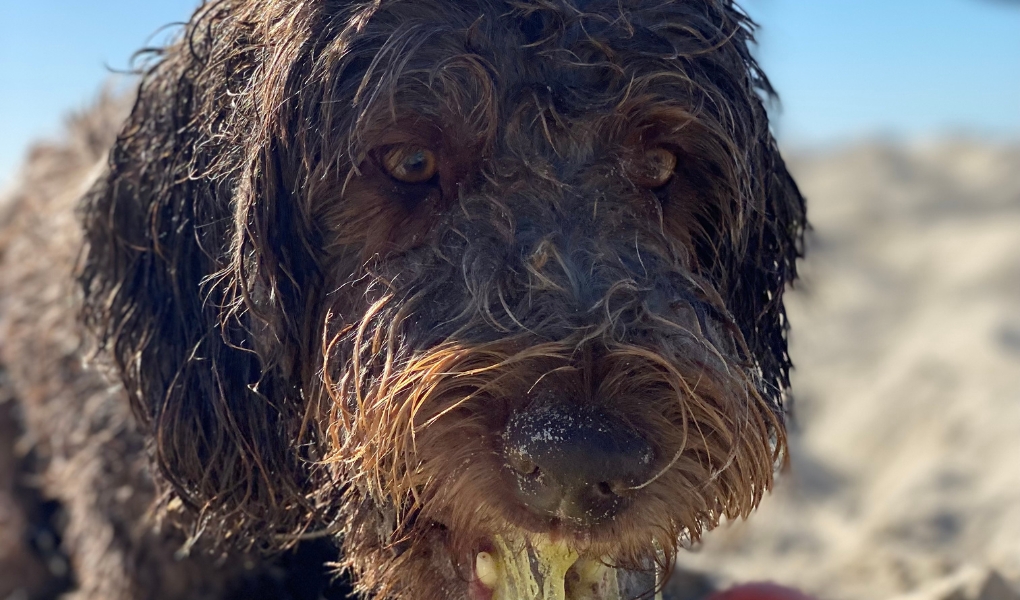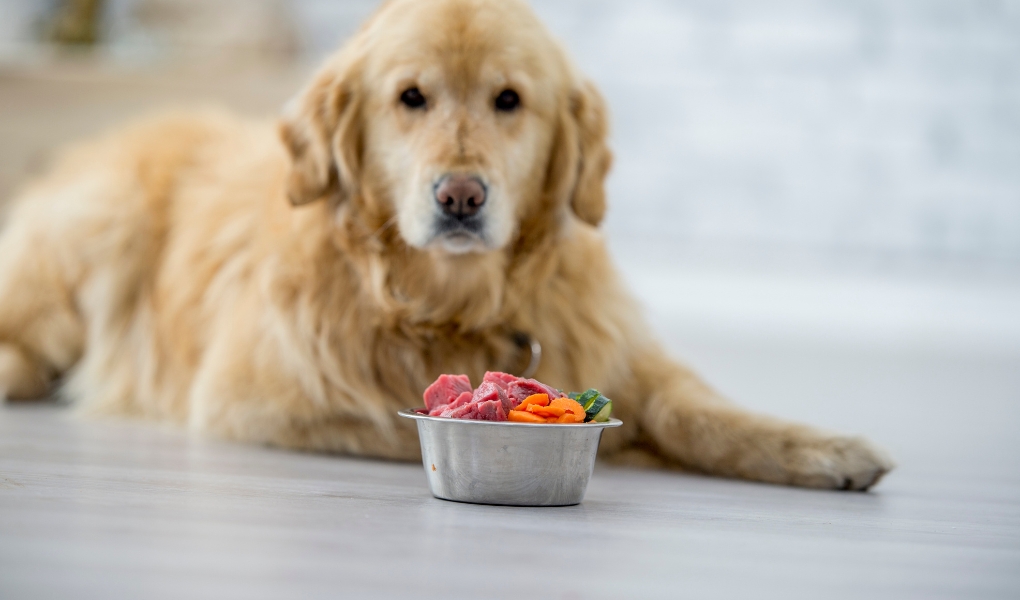Table of Contents
ToggleA Comprehensive Guide
Choosing the best dog food for your breed is crucial for ensuring your pet’s optimal health and well-being. This comprehensive guide covers everything you need to know about selecting the right food for different breeds, including nutritional needs, common health issues, and tailored dietary recommendations.
Introduction to Breed-Specific Dog Food
How to choose the best dog food for your breed? Every dog breed has unique nutritional requirements based on size, activity level, and genetic predispositions to certain health conditions. Understanding these needs is essential for providing your dog with a diet that supports their health and longevity.
Understanding Breed-Specific Nutritional Needs
Different dog breeds have varying nutritional needs. Factors that influence these requirements include:
Size and Weight
- Small breeds require more calories per pound of body weight due to their faster metabolism.
- Large breeds need diets that support joint health and prevent obesity.
Activity Level
- Active breeds, such as Border Collies or German Shepherds, require high-energy diets rich in protein and fat.
- Less active breeds, like Bulldogs or Basset Hounds, need fewer calories to prevent weight gain.
Genetic Health Conditions
- Some breeds are prone to specific health issues that can be managed or mitigated through diet. For example, Dachshunds are prone to back issues, while Golden Retrievers can be susceptible to heart conditions.
Nutritional Requirements for Small Breeds
Small breed dogs, such as Chihuahuas and Pomeranians, have unique dietary needs:
High-Calorie Density
- Small breeds have higher metabolic rates and require calorie-dense food to meet their energy needs without overeating.
Small Kibble Size
- Smaller kibble is easier for small breeds to chew and digest.
Balanced Protein and Fat
- High-quality protein sources and moderate fat levels support their active lifestyles and muscle maintenance.
Nutritional Requirements for Medium Breeds
Medium breeds, such as Beagles and Cocker Spaniels, require balanced diets to maintain their health:
Moderate Calorie Intake
- Balanced calorie intake to support their energy levels without causing weight gain.
Quality Protein Sources
- Lean proteins support muscle development and maintenance.
Essential Fatty Acids
- Omega-3 and omega-6 fatty acids promote skin and coat health.
Nutritional Requirements for Large Breeds
Large breed dogs, such as Labrador Retrievers and Great Danes, need diets that support their size and growth patterns:
Controlled Growth Rate
- Diets designed to control growth rates can help prevent joint and skeletal issues.
Joint Support
- Ingredients like glucosamine and chondroitin support joint health and mobility.
Lower Caloric Density
- Lower calorie density helps prevent rapid weight gain, reducing stress on joints and bones.
Nutritional Requirements for Giant Breeds
Giant breeds, such as Mastiffs and Saint Bernards, have specific dietary needs due to their size:
Low-Fat Diet
- It helps maintain a healthy weight and reduces the risk of obesity-related issues.
Joint Health Supplements
- Essential to support their large frames and prevent joint deterioration.
Adequate Protein
- Supports muscle mass while maintaining a balanced diet to prevent excessive weight gain.
Addressing Common Health Issues Through Diet
Certain breeds are predisposed to specific health issues that can be managed through diet:
Hip Dysplasia (Large Breeds)
- Diets rich in glucosamine and chondroitin help support joint health.
- Maintaining a healthy weight is crucial to reduce stress on the joints.
Skin Allergies (Bulldogs, Terriers)
- Limited-ingredient diets can help identify and eliminate allergens.
- Omega-3 fatty acids help reduce inflammation and improve skin health.
Cardiac Issues (Doberman Pinschers, Cavalier King Charles Spaniels)
- Diets with taurine and L-carnitine support heart health.
- Low-sodium diets can help manage heart conditions.
Tailored Dietary Recommendations for Popular Breeds
Here are specific dietary recommendations for some popular dog breeds:
Labrador Retriever
- High-protein diet to support muscle mass: Labradors are active and muscular, requiring high-quality protein sources like chicken, beef, or fish to maintain their muscle mass. Protein supports tissue repair and growth, essential for their active lifestyle.
- Joint supplements to prevent hip dysplasia Labradors are prone to hip dysplasia, a genetic condition affecting the hip joints. Including glucosamine and chondroitin in their diet helps maintain joint health and mobility, preventing deterioration over time.
- Moderate fat content to avoid obesity: This breed tends to gain weight easily, so it's crucial to provide a diet with controlled fat levels. Healthy fats like fish oil provide necessary energy without contributing to excessive weight gain.
- Omega-3 fatty acids for skin and coat health: Omega-3 fatty acids, found in fish oil and flaxseed, support a healthy skin and coat, reducing inflammation and keeping their fur shiny and smooth.
- Antioxidants to support overall health: Antioxidants from fruits and vegetables help bolster the immune system, protecting Labradors from illnesses and promoting long-term health.
German Shepherd
- Rich in protein and fat to support high activity levels: German Shepherds are highly active and require a diet rich in protein and healthy fats. Lean meats and fish provide the energy and nutrients needed to sustain their activity levels and muscle mass.
- Digestive health ingredients for their sensitive stomachs This breed often has sensitive digestive systems. Ingredients like pumpkin, sweet potatoes, and probiotics support healthy digestion and prevent gastrointestinal issues.
- Joint health supplements for hip and elbow dysplasia: German Shepherds are susceptible to hip and elbow dysplasia. Supplements containing glucosamine and chondroitin can help maintain joint integrity and reduce pain and inflammation.
- Omega-3 fatty acids for brain health: Omega-3 fatty acids support cognitive function, crucial for this intelligent breed. Sources like fish oil and flaxseed enhance brain health and overall cognitive abilities.
- Probiotics to support gut health: Probiotics help maintain a healthy gut microbiome, improving digestion and nutrient absorption. They are particularly beneficial for German Shepherds with sensitive stomachs.
Bulldog
- Limited ingredient diets to manage food allergies: Bulldogs are prone to food allergies. A limited ingredient diet helps identify and eliminate allergens, reducing skin irritations and digestive problems.
- Moderate calorie content to prevent obesity: Bulldogs have a tendency to gain weight, so a moderate-calorie diet helps maintain a healthy weight, preventing obesity-related health issues.
- Omega-3 fatty acids for skin health Omega-3 fatty acids from fish oil and flaxseed help reduce skin inflammation and maintain a healthy coat, addressing common skin issues in Bulldogs.
- Digestive enzymes to aid in digestion: Digestive enzymes help Bulldogs break down food more efficiently, improving nutrient absorption and reducing digestive discomfort.
- Probiotics to support a healthy gut: Probiotics promote a balanced gut microbiome, enhancing digestive health and preventing gastrointestinal issues common in Bulldogs.
Poodle
- High-quality protein for muscle maintenance: Poodles require high-quality protein sources like chicken, beef, or fish to maintain their muscle mass and energy levels, especially in larger varieties.
- Omega-3 and omega-6 fatty acids for skin and coat health: These fatty acids, found in fish oil and flaxseed, keep Poodles' coats shiny and reduce skin inflammation, supporting overall skin health.
- Antioxidants to support their long lifespan: Antioxidant-rich foods like blueberries and carrots bolster the immune system, helping Poodles maintain health and longevity.
- Joint supplements for larger Poodle varieties: Standard Poodles can benefit from glucosamine and chondroitin supplements to support joint health, preventing arthritis and maintaining mobility.
- Vitamins and minerals to support overall health: A diet rich in essential vitamins and minerals supports Poodles' overall health, contributing to strong bones, healthy skin, and a robust immune system.
Dachshund
- Controlled calorie intake to prevent obesity Dachshunds are prone to obesity, which can exacerbate back problems. A controlled-calorie diet helps maintain a healthy weight and reduces strain on their spine.
- High-quality protein to support lean muscle mass: Lean proteins like chicken, turkey, and fish help maintain muscle mass while providing the necessary energy for their active nature.
- Joint health supplements to support their spine: Supplements containing glucosamine and chondroitin support spinal health, crucial for preventing intervertebral disc disease common in Dachshunds.
- Calcium and phosphorus for strong bones: Adequate calcium and phosphorus levels are essential for maintaining strong bones and preventing skeletal issues in this breed.
- Omega-3 fatty acids for skin health: Omega-3 fatty acids reduce inflammation and support healthy skin, addressing common skin issues in Dachshunds
Golden Retriever
- Balanced protein and fat to support their activity level: Golden Retrievers require a balanced diet rich in protein and healthy fats to support their active lifestyle and maintain muscle mass.
- Joint health supplements for hip dysplasia: Including glucosamine and chondroitin helps prevent and manage hip dysplasia, a common issue in Golden Retrievers, supporting joint health and mobility.
- Antioxidants for immune health: Antioxidant-rich foods like blueberries and spinach support the immune system, protecting against diseases and promoting overall health.
- Omega-3 fatty acids for coat health Omega-3 fatty acids from fish oil enhance coat health, reducing shedding and keeping the fur shiny and healthy.
- Low-calorie diet to prevent obesity: Golden Retrievers are prone to obesity, so a low-calorie diet helps maintain a healthy weight, reducing the risk of obesity-related health issues.
Beagle
- Moderate calorie intake to prevent weight gain: Beagles are prone to weight gain, so a diet with moderate calorie content helps maintain a healthy weight and prevent obesity.
- High-quality protein for muscle maintenance: Lean proteins like chicken, turkey, and fish help maintain muscle mass and provide the necessary energy for Beagles' active nature.
- Fiber-rich diet to support digestion: A diet rich in fiber from sources like sweet potatoes and pumpkin supports healthy digestion and prevents gastrointestinal issues.
- Omega-3 and omega-6 fatty acids for skin and coat health: These fatty acids help maintain a healthy coat and reduce skin inflammation, common issues in Beagles.
- Probiotics for gut health: Probiotics promote a healthy gut microbiome, improving digestion and nutrient absorption, crucial for Beagles' overall health.
Boxer
- High-protein diet to support muscle mass: Boxers require a diet rich in high-quality proteins to maintain their muscular build and support their active lifestyle.
- Antioxidants for immune system support: Including antioxidant-rich foods helps bolster their immune system, protecting against diseases and promoting overall health.
- Joint supplements for their active lifestyle: Glucosamine and chondroitin support joint health, preventing issues common in active breeds and maintaining mobility.
- Omega-3 fatty acids for heart health: Omega-3 fatty acids from fish oil support cardiovascular health, crucial for a breed prone to heart issues.
- Low-fat diet to prevent pancreatitis: Keeping fat content moderate helps prevent pancreatitis, a condition Boxers are susceptible to, and maintains overall health.
Shih Tzu
- High-quality protein for muscle maintenance: Shih Tzus benefit from lean proteins to support their small yet sturdy build and active nature.
- Omega-3 and omega-6 fatty acids for skin and coat health: These fatty acids help maintain a healthy coat and reduce skin issues common in this breed.
- Probiotics to support digestive health: Probiotics promote a balanced gut microbiome, enhancing digestion and preventing gastrointestinal issues.
- Vitamins and minerals for overall health: Ensuring the diet includes essential vitamins and minerals supports Shih Tzus' overall health and longevity.
- Small kibble size for easier chewing: Ensuring the kibble size is appropriate for their small mouths makes eating more comfortable and aids digestion.
Yorkshire Terrier
- High-quality protein for muscle maintenance: Yorkshire Terriers benefit from lean proteins to support their small yet muscular build and active nature.
- Omega-3 and omega-6 fatty acids for skin and coat health: These fatty acids help maintain a healthy coat and reduce skin issues common in this breed.
- Antioxidants to support their long lifespan: Including antioxidant-rich foods helps bolster their immune system and prevent common ailments.
- Vitamins and minerals for overall health: Ensuring the diet includes essential vitamins and minerals supports Shih Tzus' overall health and longevity.
- Calcium and phosphorus for bone health:Adequate calcium and phosphorus levels are essential for maintaining strong bones and preventing skeletal issues.
- Small kibble size for their small mouths: Ensuring the kibble size is appropriate for their small mouths makes eating more comfortable and aids digestion.
French Bulldog
- Limited ingredient diets to manage food allergies: French Bulldogs are prone to food allergies, which can cause skin irritations and digestive problems. A limited ingredient diet, containing a single protein source and minimal ingredients, helps identify and eliminate allergens, ensuring your Frenchie stays healthy and comfortable.
- Moderate calorie content to prevent obesity: French Bulldogs have a tendency to gain weight easily, which can exacerbate their breathing issues. A diet with moderate calorie content, balanced with adequate protein and healthy fats, helps maintain a healthy weight without sacrificing essential nutrients.
- Omega-3 fatty acids for skin health: Omega-3 fatty acids from sources like fish oil and flaxseed play a crucial role in reducing skin inflammation, alleviating itchiness, and promoting a shiny, healthy coat. This is particularly important for French Bulldogs, who are prone to skin conditions.
- Probiotics to support a healthy gut: Probiotics are beneficial bacteria that help balance the gut microbiome, enhancing digestive health and nutrient absorption. Including probiotics in your French Bulldog's diet can prevent digestive issues and improve overall gut health.
Siberian Husky
- High-protein diet to support their high energy levels: Siberian Huskies are known for their high energy and endurance. A diet rich in high-quality protein from sources like chicken, beef, and fish supports muscle maintenance and provides the energy needed for their active lifestyle.
- Omega-3 and omega-6 fatty acids for skin and coat health: These essential fatty acids help maintain a healthy skin and coat, reducing shedding and preventing dryness. They also support overall skin health, which is important for Huskies who can be prone to skin issues.
- Antioxidants for immune support: Antioxidant-rich foods like blueberries and spinach support the immune system, helping to protect against diseases and promote overall health. This is particularly beneficial for maintaining the vitality of Siberian Huskies.
- Joint supplements for their active lifestyle: Given their high activity levels, Huskies benefit from joint supplements containing glucosamine and chondroitin, which help maintain joint health and mobility, preventing common issues such as arthritis.
- Vitamins and minerals to support overall health: A diet rich in essential vitamins and minerals ensures that Huskies receive the necessary nutrients to support their overall health, including strong bones, healthy skin, and a robust immune system.
Great Dane
- Low-fat diet to prevent obesity: Great Danes are prone to obesity, which can lead to various health issues. A low-fat diet helps maintain a healthy weight while providing necessary energy without excess calories.
- Joint health supplements to support their large frames: Due to their size, Great Danes are susceptible to joint problems. Supplements with glucosamine and chondroitin help support joint health and prevent conditions like arthritis, ensuring they stay mobile and pain-free.
- High-quality protein for muscle maintenance: Lean proteins from sources like chicken, beef, and fish are essential for maintaining the muscle mass of Great Danes, supporting their large and muscular build.
- Calcium and phosphorus for bone health: Adequate calcium and phosphorus levels are crucial for maintaining strong bones and preventing skeletal issues in Great Danes, who are prone to bone diseases due to their size.
- Omega-3 fatty acids for heart health: Omega-3 fatty acids from fish oil support cardiovascular health, which is particularly important for Great Danes, as they are prone to heart conditions. These fatty acids also help reduce inflammation and promote a healthy coat.
Chihuahua
- High-calorie density to meet their metabolic needs: Despite their small size, Chihuahuas have a fast metabolism and require a high-calorie diet to meet their energy needs. Small, frequent meals with high-calorie density ensure they get enough nutrients without overeating.
- Small kibble size for easier chewing: Given their small mouths, Chihuahuas benefit from kibble specifically designed for small breeds, which is easier for them to chew and digest.
- Omega-3 and omega-6 fatty acids for skin and coat health: These fatty acids support a healthy coat and skin, reducing dryness and preventing common skin issues. They also help maintain a shiny, smooth coat.
- Antioxidants to support their long lifespan: Including antioxidant-rich foods in their diet helps support a strong immune system and overall health, contributing to a longer, healthier life for Chihuahuas.
- High-quality protein for muscle maintenance: Lean proteins like chicken and fish are crucial for maintaining the muscle mass of Chihuahuas, providing the necessary energy and supporting their active nature.
Pug
- Moderate calorie intake to prevent obesity: Pugs are prone to obesity, which can lead to respiratory issues and other health problems. A diet with moderate calorie content helps maintain a healthy weight and prevents excessive weight gain.
- High-quality protein for muscle maintenance: Lean proteins from sources like chicken, turkey, and fish help maintain muscle mass and provide the necessary energy for Pugs, supporting their overall health.
- Omega-3 and omega-6 fatty acids for skin health: These essential fatty acids support a healthy coat and skin, reducing inflammation and preventing common skin issues in Pugs.
- Probiotics for digestive health: Probiotics help maintain a balanced gut microbiome, enhancing digestion and nutrient absorption. This is especially beneficial for Pugs, who can be prone to digestive issues.
- Small kibble size for easier chewing: Ensuring the kibble size is appropriate for their small mouths makes eating more comfortable and aids digestion, preventing choking or discomfort.
Rottweiler
- High-protein diet to support muscle mass: Rottweilers require a high-protein diet to maintain their muscular build and support their active lifestyle. Lean meats like chicken, beef, and fish provide the necessary protein for muscle maintenance and growth.
- Joint health supplements to prevent hip dysplasia: Rottweilers are susceptible to hip dysplasia, a genetic condition affecting the hip joints. Including glucosamine and chondroitin in their diet helps maintain joint health and mobility, preventing deterioration over time.
- Omega-3 fatty acids for coat health: Omega-3 fatty acids from fish oil and flaxseed help maintain a healthy coat and reduce skin inflammation, keeping their fur shiny and smooth.
- Antioxidants for immune support: Antioxidant-rich foods like blueberries and spinach support the immune system, protecting against diseases and promoting overall health. This is particularly beneficial for maintaining the vitality of Rottweilers.
- Calcium and phosphorus for bone health: Adequate calcium and phosphorus levels are essential for maintaining strong bones and preventing skeletal issues in Rottweilers, who are prone to bone diseases due to their size and weight.
Border Collie
- Rich in protein and fat to support their high activity level: Border Collies are highly active and require a diet rich in protein and healthy fats to sustain their energy levels and muscle mass. Lean meats and fish provide the necessary nutrients for their active lifestyle.
- Omega-3 fatty acids for brain health: Omega-3 fatty acids from fish oil support cognitive function, crucial for this intelligent breed. They enhance brain health and overall cognitive abilities, keeping Border Collies sharp and focused.
- Antioxidants for immune support: Antioxidant-rich foods like blueberries and spinach support the immune system, helping to protect against diseases and promote overall health.
- Joint supplements for their active lifestyle: Given their high activity levels, Border Collies benefit from joint supplements containing glucosamine and chondroitin, which help maintain joint health and mobility, preventing common issues such as arthritis.
- Probiotics to support gut health: Probiotics promote a balanced gut microbiome, improving digestion and nutrient absorption. They are particularly beneficial for Border Collies with sensitive stomachs, enhancing overall gut health.
Boston Terrier
- Limited ingredient diets to manage food allergies: Boston Terriers are prone to food allergies. A limited ingredient diet helps identify and eliminate allergens, reducing skin irritations and digestive problems.
- Moderate calorie content to prevent obesity: This breed tends to gain weight easily, so a moderate-calorie diet helps maintain a healthy weight and prevents obesity-related issues.
- Omega-3 and omega-6 fatty acids for skin health: Omega-3 and omega-6 fatty acids from fish oil and flaxseed help maintain a healthy coat and reduce skin inflammation, keeping their fur shiny and smooth.
- Probiotics to support a healthy gut: Probiotics promote a balanced gut microbiome, enhancing digestive health and nutrient absorption. They are particularly beneficial for Boston Terriers with sensitive stomachs, improving overall gut health.
- Small kibble size for easier chewing: Ensuring the kibble size is appropriate for their small mouths makes eating more comfortable and aids digestion, preventing choking or discomfort.
Shiba Inu
- Balanced protein and fat to support their moderate activity levels. Shiba Inus benefit from a diet that includes high-quality proteins like chicken, fish, or lamb, which help maintain their muscle mass and energy levels.
- Omega-3 and omega-6 fatty acids for skin and coat health. These fatty acids help reduce shedding and maintain a shiny coat, which is important for this breed's thick fur.
- Antioxidants for immune support. Including fruits and vegetables rich in antioxidants helps bolster their immune system and prevent common ailments.
- Fiber for digestive health. A diet with adequate fiber helps maintain regular bowel movements and prevents digestive issues.
Cavalier King Charles Spaniel
- High-quality protein for muscle maintenance. This breed benefits from a diet rich in lean proteins to support their small yet muscular build.
- Omega-3 fatty acids for heart health. Since Cavaliers are prone to heart conditions, incorporating fish oils or flaxseed can support cardiovascular health.
- Low-sodium diet to prevent heart issues. Keeping sodium levels low helps manage and prevent heart conditions common in this breed.
- Vitamins and minerals to support overall health. Ensuring the diet includes essential vitamins and minerals can help support their long lifespan.
Pembroke Welsh Corgi
- Moderate calorie intake to prevent obesity. Corgis are prone to gaining weight, so a controlled-calorie diet helps maintain a healthy weight.
- High-quality protein to support muscle mass. This breed requires good protein sources to support their active and playful nature.
- Joint health supplements to support their short legs and long back. Glucosamine and chondroitin can help prevent joint issues and support mobility.
- Omega-3 fatty acids for skin and coat health. These help maintain a healthy coat and reduce inflammation.
Shetland Sheepdog
- High-protein diet to support their active lifestyle. Shelties are energetic and require a diet rich in protein to maintain their muscle mass.
- Omega-3 and omega-6 fatty acids for coat health. These essential fatty acids help keep their double coat shiny and healthy.
- Antioxidants for immune support. Including antioxidants from fruits and vegetables helps support their overall health and longevity.
- Joint supplements to support agility. Glucosamine and chondroitin can help maintain joint health, which is important for their agility activities>
Doberman Pinscher
- High-protein diet to support muscle mass. Dobermans require high-quality proteins to maintain their muscular build and active lifestyle.
- Omega-3 fatty acids for heart health. Incorporating fish oils or flaxseed supports cardiovascular health, important for this breed's predisposition to heart issues.
- Antioxidants for immune support. Antioxidant-rich foods help bolster their immune system and prevent common ailments.
- Low-fat diet to prevent pancreatitis. Keeping fat content moderate helps prevent pancreatitis and maintain a healthy weight.
Miniature Schnauzer
- High-quality protein for muscle maintenance. Miniature Schnauzers benefit from lean proteins to support their small yet sturdy build.
- Omega-3 and omega-6 fatty acids for skin and coat health. These fatty acids help maintain a healthy coat and reduce skin issues common in this breed.
- Low-fat diet to prevent pancreatitis. Schnauzers are prone to pancreatitis, so a diet low in fat is essential.
- Fiber for digestive health. Adequate fiber helps maintain regular bowel movements and supports a healthy digestive system.
Havanese
- High-quality protein to support muscle maintenance. This small breed requires good protein sources to support their active and playful nature.
- Omega-3 and omega-6 fatty acids for skin and coat health. These fatty acids help maintain a healthy coat and reduce skin issues common in this breed.
- Antioxidants to support their long lifespan. Including antioxidant-rich foods helps bolster their immune system and prevent common ailments.
- Small kibble size for easier chewing. Ensuring the kibble size is appropriate for their small mouths makes eating more comfortable and aids digestion.
Australian Cattle Dog
- High-protein diet to support their high energy levels. This active breed requires a diet rich in protein to maintain muscle mass and support their work and activities.
- Omega-3 and omega-6 fatty acids for skin and coat health. These essential fatty acids help maintain a shiny coat and reduce inflammation.
- Joint supplements to support mobility. Including glucosamine and chondroitin helps prevent joint issues and supports their active lifestyle.
- Antioxidants for immune support. Foods rich in antioxidants help support their overall health and longevity.
Bernese Mountain Dog
- Moderate calorie intake to prevent obesity. This large breed is prone to weight gain, so controlling calorie intake is essential.
- High-quality protein to support muscle mass. Including lean proteins helps maintain their large muscular build.
- Joint health supplements to support their large frame. Glucosamine and chondroitin can help prevent joint issues common in large breeds.
- Omega-3 fatty acids for coat health. These help maintain a healthy coat and reduce shedding.
Bichon Frise
- High-quality protein for muscle maintenance. This small breed benefits from lean proteins to support their active and playful nature.
- Omega-3 and omega-6 fatty acids for skin and coat health. These fatty acids help maintain a healthy coat and reduce skin issues common in this breed.
- Antioxidants to support their long lifespan. Including antioxidant-rich foods helps bolster their immune system and prevent common ailments.
- Small kibble size for easier chewing. Ensuring the kibble size is appropriate for their small mouths makes eating more comfortable and aids digestion.
Bloodhound
- High-protein diet to support muscle mass. Bloodhounds benefit from a diet rich in protein to maintain their large, muscular build.
- Moderate calorie intake to prevent obesity. Controlling calorie intake helps maintain a healthy weight and prevents obesity-related issues.
- Joint health supplements to support their large frame. Including glucosamine and chondroitin helps prevent joint issues common in large breeds.
- Omega-3 fatty acids for coat health. These help maintain a healthy coat and reduce shedding.
Boston Terrier
- Limited ingredient diets to manage food allergies. This breed is prone to allergies, so a limited-ingredient diet helps identify and eliminate allergens.
- Moderate calorie content to prevent obesity. Controlling calorie intake helps maintain a healthy weight and prevents obesity-related issues.
- Omega-3 and omega-6 fatty acids for skin health. These essential fatty acids help reduce skin inflammation and maintain a shiny coat.
- Probiotics to support a healthy gut. Including probiotics helps support digestive health and improve nutrient absorption.
Border Collie
- Rich in protein and fat to support their high activity level. This active breed requires a diet rich in protein and fat to maintain muscle mass and support their work and activities.
- Omega-3 fatty acids for brain health. Including fish oils or flaxseed supports cognitive function and overall brain health.
- Antioxidants for immune support. Foods rich in antioxidants help support their overall health and longevity.
- Joint supplements to support their active lifestyle. Including glucosamine and chondroitin helps prevent joint issues and supports mobility.
Boston Terrier
- Limited ingredient diets to manage food allergies. This breed is prone to allergies, so a limited ingredient diet helps identify and eliminate allergens.
- Moderate calorie content to prevent obesity. Controlling calorie intake helps maintain a healthy weight and prevents obesity-related issues.
- Omega-3 and omega-6 fatty acids for skin health. These essential fatty acids help reduce skin inflammation and maintain a shiny coat.
- Probiotics to support a healthy gut. Including probiotics helps support digestive health and improve nutrient absorption.
Bull Terrier
- High-quality protein to support muscle maintenance. This muscular breed benefits from lean proteins to maintain their strong build.
- Omega-3 and omega-6 fatty acids for skin and coat health. These fatty acids help maintain a healthy coat and reduce skin issues common in this breed.
- Antioxidants for immune support. Including antioxidant-rich foods helps bolster their immune system and prevent common ailments.
- Joint supplements to support their active lifestyle. Including glucosamine and chondroitin helps prevent joint issues and supports mobility.
Chihuahua
- High-calorie density to meet their metabolic needs. This small breed requires calorie-dense food to meet their energy needs without overeating.
- Small kibble size for easier chewing. Ensuring the kibble size is appropriate for their small mouths makes eating more comfortable and aids digestion.
- Omega-3 and omega-6 fatty acids for skin and coat health. These fatty acids help maintain a healthy coat and reduce skin issues common in this breed.
- Antioxidants to support their long lifespan. Including antioxidant-rich foods helps bolster their immune system and prevent common ailments.
Chow Chow
- Moderate calorie intake to prevent obesity. This breed is prone to weight gain, so controlling calorie intake is essential.
- High-quality protein to support muscle mass. Including lean proteins helps maintain their muscular build.
- Omega-3 and omega-6 fatty acids for skin and coat health. These fatty acids help maintain a healthy coat and reduce skin issues common in this breed.
- Joint supplements to support mobility. Including glucosamine and chondroitin helps prevent joint issues and supports their large frame.
How to Read Dog Food Labels for Breed-Specific Needs
Understanding dog food labels is crucial for choosing the right diet for your breed:
Ingredient List
- Look for high-quality protein sources listed first.
- Avoid fillers and artificial additives that can cause allergies or digestive issues.
Guaranteed Analysis
- Ensure the food meets the minimum requirements for protein, fat, and other essential nutrients for your breed.
Nutritional Adequacy Statement
- Look for AAFCO certification to ensure the food provides balanced nutrition for your dog's life stage and size.
Transitioning to a New Diet
Transitioning your dog to a new diet should be done gradually to avoid digestive issues:
- Days 1-2: 75% old food, 25% new food.
- Days 3-4: 50% old food, 50% new food.
- Days 5-6: 25% old food, 75% new food.
- Day 7: 100% new food.
Monitor your dog during this transition for any signs of digestive distress and adjust the transition period if necessary.
Guaranteed Analysis
- Ensure the food meets the minimum requirements for protein, fat, and other essential nutrients for your breed.
Nutritional Adequacy Statement
- Look for AAFCO certification to ensure the food provides balanced nutrition for your dog's life stage and size.
Conclusion
How to choose the best dog food for your breed: Understanding the unique nutritional needs of different breeds is essential for ensuring your dog’s health and well-being. By considering factors such as size, activity level, and genetic predispositions, you can select a diet that supports your dog’s specific needs. For more expert insights and comprehensive guides, explore our other blog posts at Harmony Dog Food.







